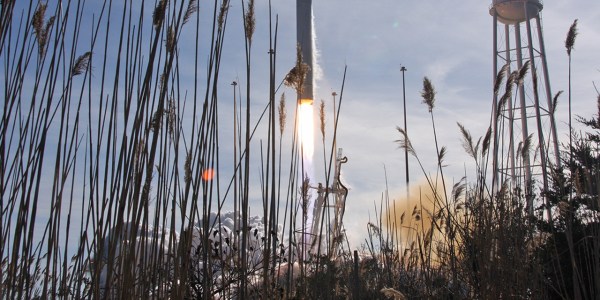Swiss scientist Michel Mayor, who heads the European team that announced the discovery of a new potentially habitable planet, has his sights set on an even bigger target, detecting signs of extraterrestrial life.
Mayor predicts that top researchers are less than two decades away from being able to detect real signs of such life — if it exists.
"There's only one thing we can do. We can do science, we can do experiments. We have the methodology, the ability to do this simply on science, so let's do it," the University of Geneva scientist said Wednesday.
Mayor, who was credited in 1995 with co-finding the first planets outside our solar system, said the scientist in him was unsure of the presence of other life forms in our universe. "But, personally, I feel comfortable with the idea of life existing elsewhere," the 65-year-old said in a telephone interview with The Associated Press.
Leading astronomers are describing the discovery of the new planet as a big step in the search for life in the universe because it is just the right size, might have water in liquid form, and in galactic terms is relatively nearby at 120 trillion miles away.
But there is still a lot that is unknown about the new planet, named 581 c, discovered by the European Southern Observatory's telescope in La Silla, Chile. The telescope, which Mayor helped design, has a special instrument that splits light to find wobbles in different wave lengths, revealing the possible existence of other worlds.
"It is an absolutely fantastic instrument with great precision," Mayor said, but added that the planet's diameter, atmospheric makeup and contents have yet to be confirmed.
Stephane Udry, the discovery team's lead author also based in Geneva, speculated that the new planet is probably full of liquid water, but conceded that he bases the conjecture on how planets form, not on any evidence.
Mayor said many more planets meeting scientists' requirements for habitability would be found, but that that the most significant short-term discovery would be that of a low-mass planet even more similar to Earth. 581 c is about five times heavier than our planet, but is still the smallest found exoplanet, or one that is outside our solar system.
Switzerland, which takes pride in its achievements in engineering and biotechnology, feted the role of Mayor and Udry in the discovery.
Slideshow 12 photos
Month in Space: January 2014
"Swiss scientist discovers new Earth," the Zurich-based tabloid Blick declared next to a picture of Udry.
The daily Tribune de Geneve also praised the scientists, but couldn't help taking a shot at the world's traditional leaders in the study of the cosmos_ the United States.
"American scientists recently estimated that the discovery of an exoplanet resembling the Earth would probably take 20 years," it wrote. "The Europeans didn't wait for them."
Mayor predicted that NASA's Terrestrial Planet Finder and the European Space Agency's Darwin satellite would make increasingly significant contributions in the search for extraterrestrial intelligence.
He said these institutions will be able to directly look for "signatures of life" on other planets, similar to the high presence of oxygen in our atmosphere, within 15 to 20 years.
